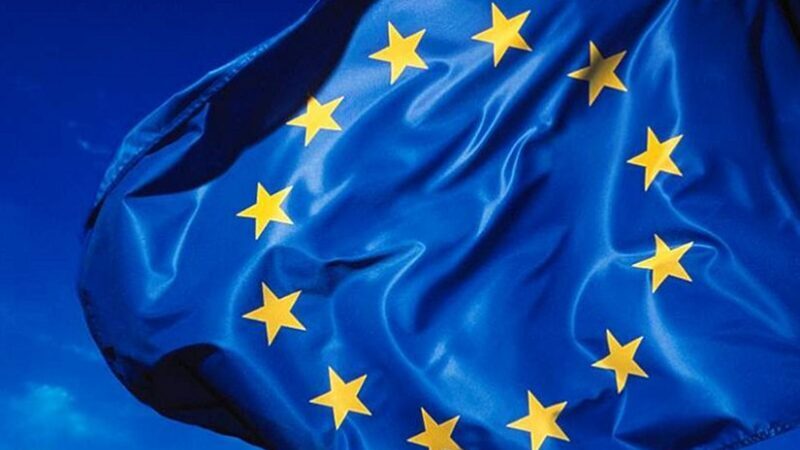
By Luke Coffey
Tens of millions of Europeans went to the polls last week to vote in the European Parliament elections. In all, 720 seats divided between the 27 EU members were up for grabs. Although the European Parliament is the only directly elected EU institution, it also happens to be the one with the least amount of power when compared to the European Commission and the European Council. Even so, European Parliament elections matter because they often set the political tone for the bloc.
Last week’s elections were no different. While the mainstream center-right political grouping in the European Parliament, the European People’s Party, continues to hold the most seats, there was a significant increase in seats for far-right political parties, mostly at the expense of left-wing parties.
The outcome of these elections sent political shock waves across some countries in the EU. Meanwhile, the UK, while no longer in the EU, is also experiencing a period of political turmoil.
Perhaps the biggest shock wave resulting from the European elections was the one that hit France. The far-right National Rally party led by Marine Le Pen won the largest number of seats. This rattled French President Emmanuel Macron, who has led a center-left minority government for the last two years. When Macron subsequently called snap elections, which will take place on June 30 and July 7, many were shocked.
The thinking behind Macron’s decision is not clear. He wants to force the French public to make a binary choice between the far right and more mainstream political parties, and he believes an immediate election is the best way to do this. It is one thing to vote for a far-right party in European elections, but voters tend to moderate their preferences in national elections.
Macron is hoping that National Rally’s recent success was a result of protest voting by the French public and not a fundamental realignment of French politics. It is likely that the president believes that a swift defeat of National Rally so soon after its victorious European election results would prevent Le Pen from becoming a serious contender in the 2027 presidential election.
However, this strategy could backfire. The National Rally now has incredible momentum across France at a time when Macron’s popularity remains at an all-time low. Furthermore, the leader of France’s mainstream center-right party, The Republicans, announced that he would join forces with the National Rally if it meant taking power away from Macron. He has since been removed by party officials.
If Macron’s plan does backfire, it could have major implications for France’s role in Europe and NATO, especially as it pertains to important issues like Ukraine.
The second place to watch this summer is Germany. Chancellor Olaf Scholz’s Social Democratic Party came third in the country’s European elections, behind the mainstream center-right Christian Democratic Union and the far-right Alternative for Germany. This was the worst showing for the Social Democrats in a national election in decades.
Unlike Macron, Scholz has said that an early election is not on the table. Ultimately, however, the final decision on this matter may not be his to make. As with France, the European elections were seen as a vote of no-confidence for national governments across Europe, and Germany was no exception. With a coalition government that faced problems even before the vote, the political pressure may build from all sides of German politics to force Scholz into calling an early election.
In the coming weeks, the ruling coalition will try working together to formulate a common budget. This will no doubt place considerable political strain on the coalition and could make snap elections more likely. Germany is Europe’s largest economy and is the primary motor behind EU politics. When Germany goes to the polls, it matters for the whole continent.
There is one more important election that will take place this summer in Europe, but not in the EU: the UK. Even though British Prime Minister Rishi Sunak called an early election well before the European elections took place, many of the same factors that impact politics on the continent also impact the UK.
After 14 years in power, it is likely that the Conservative Party will be on its way out when voters go to the polls next month. How big the Labour Party’s majority will be is really the main question at this point. One important factor to watch will be the emergence of the populist Reform UK party in British politics and what role it will play in the election outcome. Due to the country’s electoral system, it will be very difficult for any Reform candidate to win a seat in the House of Commons. However, Conservative Party voters who are disillusioned with the recent direction of the party could be tempted to vote for it as a form of protest. This will likely lead to an even larger Labour Party majority than would have otherwise been the case.
Whether inside or outside the EU, the politics across Europe will remain contentious this summer. With Europe’s three biggest economies either holding elections or possibly doing so, the next few months could set the future direction of the continent for years to come. The uncertainty of the US presidential election this November complicates matters even further.
Europe is facing ongoing economic challenges and energy security issues. At the same time, the largest war on the continent since the 1940s is taking place in Ukraine. As Europeans head to the polls this summer, the stakes will be high. Not just for Europe, but the rest of the world too.
- Luke Coffey is a senior fellow at the Hudson Institute. X: @LukeDCoffey
